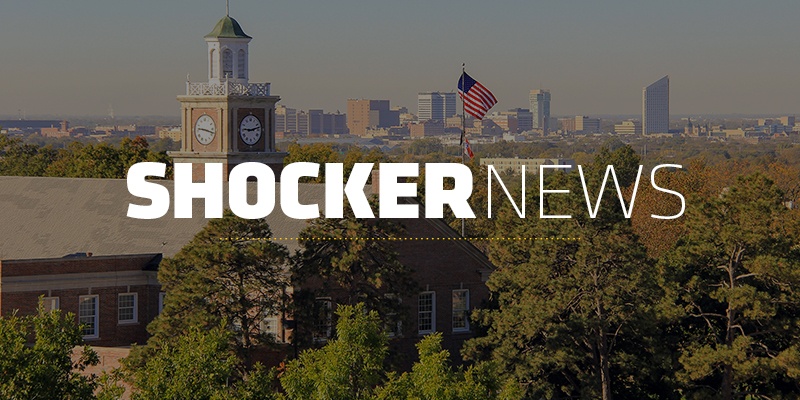How applied learning kickstarts collaboration between academic colleges

When Ryland first visited Wichita State’s Evelyn Hendren Cassat Speech-Language-Hearing Clinic back in 2017, he had missed the major communication milestones for the average four-year-old. Vocal but not verbal, mobile but not ambulatory, his autism diagnosis posed serious challenges to his development as he prepared to enter kindergarten.
Terese Conrad, clinical professor for the College of Health Professions, remembers the early days of working with Ryland. With no shared language between her team of graduate students and their young patient, the speech pathologists-in-training had to quickly learn to communicate without language. They began by making adjustments to the room, replacing the busy carpet with a solid pattern, hanging sheer fabric beneath the bright fluorescent overhead lights and avoiding reflective surfaces wherever possible, all in an effort to reduce visual distractions.
“It’s been trial-and-error, but a great experience for everyone who’s ever worked with him,” said Conrad. “Our students are figuring out how to figure things out before a client is even verbal, and every new class gets to encounter the skills he has developed with the previous graduate cohort.”
Over time, Conrad’s team identified Ryland’s nonverbal communicative strengths. To coopt those strengths, however, would require resources beyond the walls of the clinic. So, they reached out to Samantha Corcoran, associate educator from the biomedical department of the College of Engineering.

“Applied learning can happen in many ways, but for us, having a real-life client depending on us for communication or mobility is a game changer,” said Corcoran. “Serving Ryland gave this engineering team the opportunity to build empathy for him to fully understand his needs. The team also learned from Terese and her students about Ryland’s development and abilities so they could collaboratively tailor a custom communication solution specifically for his needs. This is human-centered design at its best.”
Applied learning remains a top priority for all Wichita State students, and it can be seen in every academic discipline, between departments and across academic colleges. By taking knowledge outside of the walls of the classroom, students are receiving a rounded education, as well as doing good in the community before even beginning their careers. Just ask Ryland.
“It’s all about bringing people with different lenses together, helping them learn from others and new perspectives,” said Conrad. “In an ideal world, we are all working together for the greater good.”



